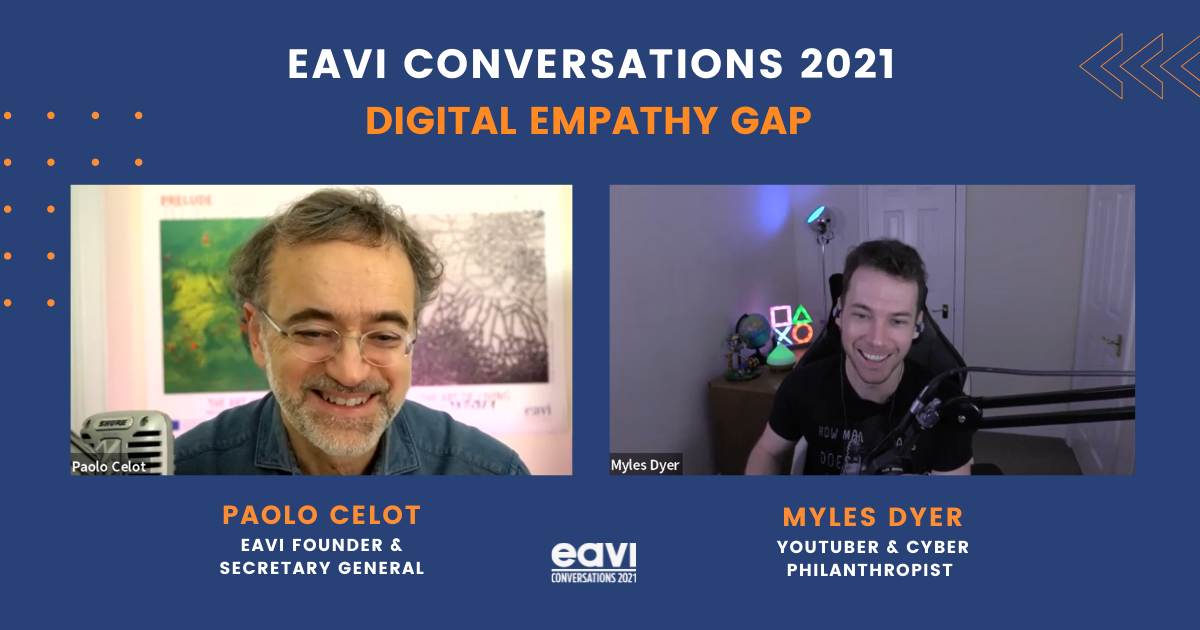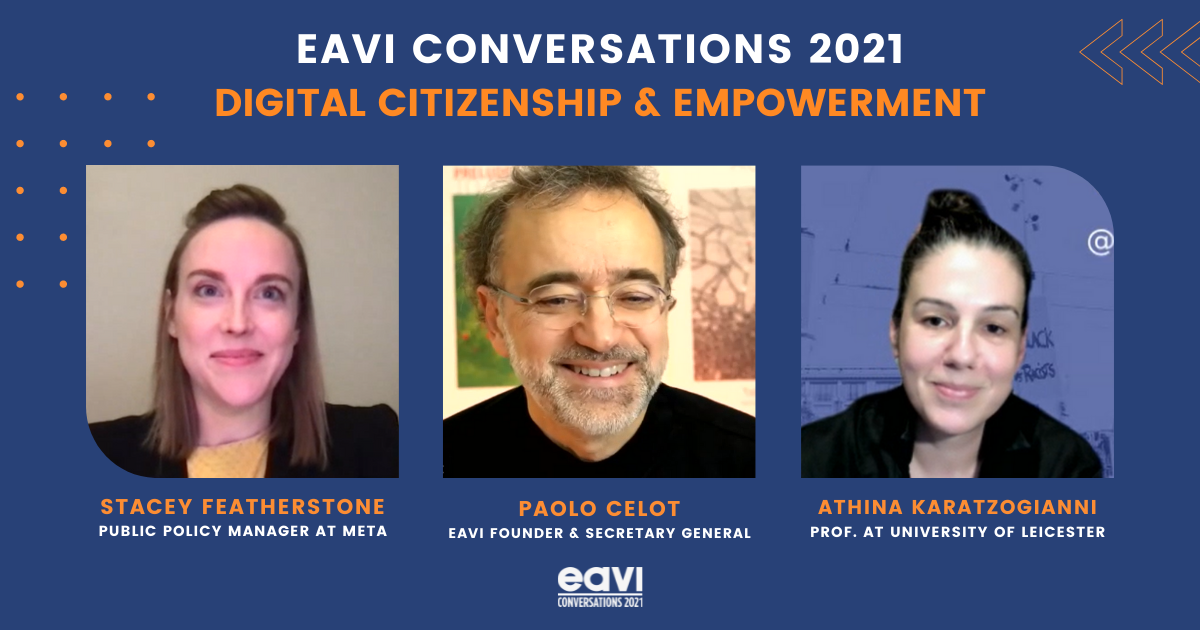 |
|
New Study ‘Testing and refining criteria to assess Media Literacy Levels in all Member States’ It is now well accepted that media literacy is absolutely vital: “Media literacy is as central to active and full citizenship as literacy was at the beginning of the 19th century,” Viviane Reding.1 The European Commission actively promotes media literacy and has a reporting obligation, set out in the Audiovisual Media Services Directive, to measure levels of media literacy in all EU member States. We are pleased to announce that in Summer 2010, the European Commission commissioned the consortium of the Danish Technological Institute and EAVI (European Associtation for Viewers Interests) with the external support of the Oxford Internet Institute and other experts, to carry out the third Europe wide study on media literacy in all European member states. The study is entitled “Testing and refining criteria to assess media literacy levels in all Member States”. The first study “Current trends and approaches to media literacy in Europe” (2007) was carried out by Universidad Autonoma de Barcelona and it suggested that a tool based on empirical data was needed in order to measure ML levels and development. The second study was conducted by an EAVI Consortium and was entitled “Study on Assessment Criteria for Media Literacy Levels” (2009). This study developed a comprehensive framework of criteria and indicators for media literacy and made the first ambitious attempt to collect comprehensive empirical data from all Member States. The present study is a direct follow up, designed to test and refine this framework with the aim of getting in-depth and concrete results on the Media Literacy Levels in all Member States. EAVI is delighted to once more be a part of ground breaking research in such a vital field. The study is now well under way. The European Commission’s first report to the European Parliament, the Council and the European Economic and Social Committee on the levels of Media Literacy in all Member States is due in December 2011. The final results of this third media literacy study will play an important role in the preparation for the report. This third study has two main objectives: Firstly it will verify the framework for the assessment of media literacy both theoretically and empirically while taking into account the practical requirements of the availability of data. The theoretical analysis involves a review of current research on the topic and meetings with acknowledged expert of media literacy both in the academic world and among media representatives. Secondly: the framework will then be tested by interviewing a sample of Europeans representing a number of countries across Europe. Furthermore, the study will have an in-depth look at the levels of media literacy in different age groups. The final report of the study will be available in Summer 2011.
|
 |
|
New Study ‘Testing and refining criteria to assess Media Literacy Levels in all Member States’ It is now well accepted that media literacy is absolutely vital: “Media literacy is as central to active and full citizenship as literacy was at the beginning of the 19th century,” Viviane Reding.1 The European Commission actively promotes media literacy and has a reporting obligation, set out in the Audiovisual Media Services Directive, to measure levels of media literacy in all EU member States. We are pleased to announce that in Summer 2010, the European Commission commissioned the consortium of the Danish Technological Institute and EAVI (European Associtation for Viewers Interests) with the external support of the Oxford Internet Institute and other experts, to carry out the third Europe wide study on media literacy in all European member states. The study is entitled “Testing and refining criteria to assess media literacy levels in all Member States”. The first study “Current trends and approaches to media literacy in Europe” (2007) was carried out by Universidad Autonoma de Barcelona and it suggested that a tool based on empirical data was needed in order to measure ML levels and development. The second study was conducted by an EAVI Consortium and was entitled “Study on Assessment Criteria for Media Literacy Levels” (2009). This study developed a comprehensive framework of criteria and indicators for media literacy and made the first ambitious attempt to collect comprehensive empirical data from all Member States. The present study is a direct follow up, designed to test and refine this framework with the aim of getting in-depth and concrete results on the Media Literacy Levels in all Member States. EAVI is delighted to once more be a part of ground breaking research in such a vital field. The study is now well under way. The European Commission’s first report to the European Parliament, the Council and the European Economic and Social Committee on the levels of Media Literacy in all Member States is due in December 2011. The final results of this third media literacy study will play an important role in the preparation for the report. This third study has two main objectives: Firstly it will verify the framework for the assessment of media literacy both theoretically and empirically while taking into account the practical requirements of the availability of data. The theoretical analysis involves a review of current research on the topic and meetings with acknowledged expert of media literacy both in the academic world and among media representatives. Secondly: the framework will then be tested by interviewing a sample of Europeans representing a number of countries across Europe. Furthermore, the study will have an in-depth look at the levels of media literacy in different age groups. The final report of the study will be available in Summer 2011.
|
 |
|
New Study ‘Testing and refining criteria to assess Media Literacy Levels in all Member States’ It is now well accepted that media literacy is absolutely vital: “Media literacy is as central to active and full citizenship as literacy was at the beginning of the 19th century,” Viviane Reding.1 The European Commission actively promotes media literacy and has a reporting obligation, set out in the Audiovisual Media Services Directive, to measure levels of media literacy in all EU member States. We are pleased to announce that in Summer 2010, the European Commission commissioned the consortium of the Danish Technological Institute and EAVI (European Associtation for Viewers Interests) with the external support of the Oxford Internet Institute and other experts, to carry out the third Europe wide study on media literacy in all European member states. The study is entitled “Testing and refining criteria to assess media literacy levels in all Member States”. The first study “Current trends and approaches to media literacy in Europe” (2007) was carried out by Universidad Autonoma de Barcelona and it suggested that a tool based on empirical data was needed in order to measure ML levels and development. The second study was conducted by an EAVI Consortium and was entitled “Study on Assessment Criteria for Media Literacy Levels” (2009). This study developed a comprehensive framework of criteria and indicators for media literacy and made the first ambitious attempt to collect comprehensive empirical data from all Member States. The present study is a direct follow up, designed to test and refine this framework with the aim of getting in-depth and concrete results on the Media Literacy Levels in all Member States. EAVI is delighted to once more be a part of ground breaking research in such a vital field. The study is now well under way. The European Commission’s first report to the European Parliament, the Council and the European Economic and Social Committee on the levels of Media Literacy in all Member States is due in December 2011. The final results of this third media literacy study will play an important role in the preparation for the report. This third study has two main objectives: Firstly it will verify the framework for the assessment of media literacy both theoretically and empirically while taking into account the practical requirements of the availability of data. The theoretical analysis involves a review of current research on the topic and meetings with acknowledged expert of media literacy both in the academic world and among media representatives. Secondly: the framework will then be tested by interviewing a sample of Europeans representing a number of countries across Europe. Furthermore, the study will have an in-depth look at the levels of media literacy in different age groups. The final report of the study will be available in Summer 2011.
|






















































































































































